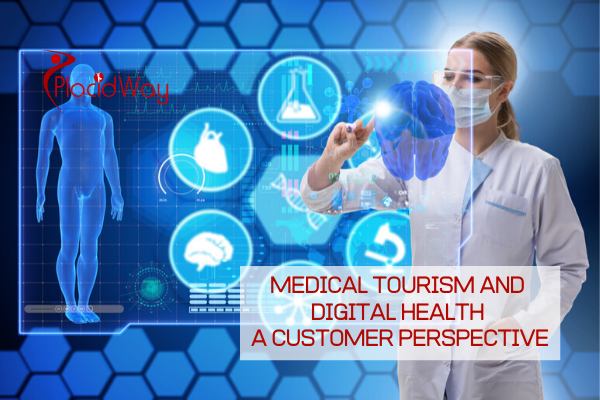As the Medical Tourism industry evolves in the digital health era, customers are increasingly seeking better experience by using tools they use in their daily lives. The medical tourism patients continue to assume the role of healthcare consumer with same researching and buying behavior as travel and tourism industry or consumer products purchases. Increasingly, they want to eliminate complex processes and use technology to access solutions they are interested in.
Based on the recent PlacidWay’s analysis of medical tourism consumer behavior, the patient expectation is changing rapidly. They have high expectation for providers to respond to their needs and inquiries in a fashion they are used to using latest technologies. The patients are using and expected to use medical tourism digital tools that facilitate patient-provider interaction. The digital health of medical tourism processes includes:
- Online education about various treatment protocols and options
- Transparency on price, success rates, credentials
- Remote consultation to diagnose symptoms
- Treatment plan based on remote consultation
- Logistics coordination and management
- Patient provider interaction throughout the medical tourism journey
- Virtual care access pre and post procedure
- Online appointment scheduling and management
It is shown that if the providers don’t meet customer’s expectations with regards to digital communications and interactions, the chances of creating and sustaining medical tourism program are very low. Embedding new concentric technology in medical tourism patient acquisition processes has become a ‘must’ requirement. PlacidWay’s recent survey of consumers shows that patients feel no obligation to stay or respond to the provider who does not offer a satisfactory digital experience.
Based on the observation of technology adoption among medical tourism providers, over 80% of them are resisting change and hesitant in using available online tools to attract customers.
WHY PROVIDERS FAIL TO CREATE ONLINE PRESENCE KNOWN?
Most likely they are failing because of:
- Lack of understanding of their customer behaviors
- Lack of ability to create distinct unique value proposition
- Inappropriate pricing
- Failing to be transparent, and
- Poor messaging, communications and marketing
Overall, medical tourism patients are looking for digital health tools that make their interactions with the providers worldwide easier, transparent and more convenient. Much of the medical tourism digital health tools are patient-centric. Between patient portals, self-management medical tourism process management and other administrative tools, patients are key end users.
The providers and other stakeholders must ensure that they comply with patient point of view and not insist on old archaic ways to run the modern medical tourism business.
For more information on how on how to provide better digital experience to the customers, click below:


.png)
